All for life: With Roe v. Wade finally overturned, pro-life apostolates continue serving clients, from conception through the early years and beyond

Marissa Jones plays with her 2-year-old daughter, Journey, as her twin daughters Nova and Lyric entertain each other. (NTC/Juan Guajardo)
Dr. Haywood Robinson was inside his College Station home June 24 when the U.S. Supreme Court — in a 5-4 decision — overturned the 1973 Roe v. Wade precedent that legalized abortion in the U.S.
With the words, “We hold the Constitution does not confer a right to abortion,” the Supreme Court stated Roe was wrongly decided and allowed state legislatures to regulate or ban the medical procedure.
A draft of the ruling was leaked weeks earlier, so the announcement didn’t surprise Robinson, a former abortion doctor turned pro-life advocate and 40 Days for Life speaker. He also didn’t celebrate.
“You’d think I’d be jumping up and down and bursting champagne bottles. Quite the contrary,” said the retired physician. “Our work is just beginning.”
Reversing Roe v. Wade turns an already deeply divided America into a country with two sets of states: places where abortion is either guaranteed or outlawed.
“Abortion-loving states will hyper-infuse it, and others will recognize the right of life, liberty, and the pursuit of happiness,” Dr. Robinson explained. “Our true goal is to do what’s necessary so all people have the right to life. Accomplishing that won’t be an overnight, tidy little thing. It’s going to take a long time, state by state. I can’t celebrate knowing they’re still killing babies.”
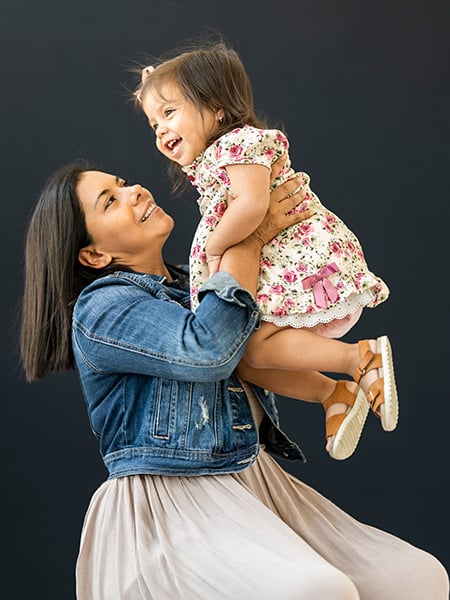
Redoubling our efforts
In a pastoral letter issued after the Supreme Court’s June 24 rulings, Bishop Michael Olson stressed the work to support the unborn and their parents has not ended despite legal decisions favoring the pro-life cause in Texas and the U.S.
“We must be mindful that at the heart of our prayers and labor is not the changing of law but the conversion of hearts toward greater gratitude, respect, and love for each human person,” said the leader of the Diocese of Fort Worth. “Human beings are only as safe as the most vulnerable member of our society.”
He promised the diocese — through its Respect Life Office, apostolates, and parish outreach — would redouble its focus to serve expectant mothers and care for the prenatal and early development needs of their children. The diocese is committed to promoting behaviors and policies that foster a safe and flourishing family life.
“Through a variety of parish and independent pro-life ministries within the 28 North Texas counties that encompass the Diocese of Fort Worth, pregnant and parenting women can find the help and support they need,” Bishop Olson assured.
We’re Here for Life
In 2020, Adriana Solis was struggling to make ends meet and pregnant with her fifth child when she turned to one of the pro-life organizations in the diocese for help.
“I was crying when I opened the door to Flourishing Tree of Life,” the 40-year-old told the North Texas Catholic. “I was worried.”
With children ranging in age from 22 to 8, the Aledo resident cleaned houses and her husband ran a lawn care business to support their family.
“So the baby was going to change everything,” she added.
Comforting words from the nonprofit’s executive director, Roxanna Young, eased her through the crisis.
“She told me everything was going to be fine. God has a plan,” Solis recalled. “We’re here to help you.”
Emotional support was coupled with practical assistance. The new mom received diapers, clothing, formula, and information about social service agencies.
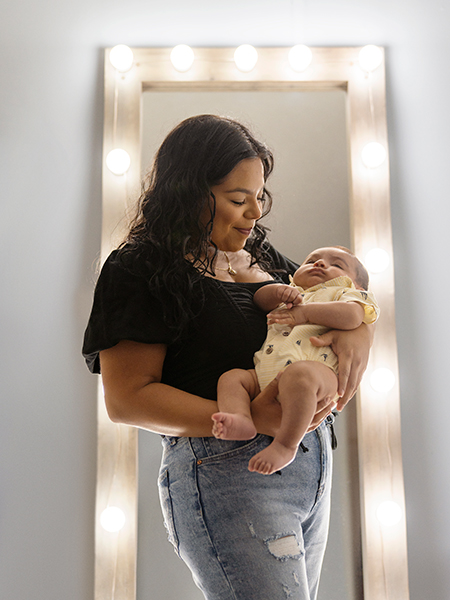
“We have a lot of resources we can connect them with, and we do it as a team. All the pregnancy centers work together,” explained Young, who started Flourishing Tree with help from fellow Holy Redeemer parishioners in Aledo in 2016. “We’re a small organization but we’re growing and we’re strong.”
The pro-life ministry now has outreach locations in Weatherford and Fort Worth in addition to Aledo and provides for families beyond a child’s birth.
One woman helped by Flourishing Tree gave birth to a child with a disability four years ago.
“The baby cannot walk or talk and we still help her,” the director said pointedly. “We have diapers from newborn to size seven. We’re here for the moms. We’re here for the families. We’re here for life.”
Hoping to attract more vulnerable women, the ministry is improving the way it uses Instagram, Twitter, and other social media platforms popular with young people.
Ninety percent of women considering abortion are either verbally or physically abused, according to Young.
“We have to strengthen our moms and women so they have the courage to say ‘no’ to their boyfriend, parents, or husband when pressured to have an abortion,” she stressed. “Because of domestic violence, I sometimes feel they don’t have a choice, and a lot of them don’t know we exist.”
Undeterred
What’s the future of the pro-life movement in the wake of Roe v. Wade’s collapse?
“I hope it makes it even stronger,” asserted Theresa Schauf, director of the diocesan Respect Life Office since 2017. “The work continues.”
Initial reaction to the rollback of Roe v. Wade incited violent attacks against Catholic Church buildings and pregnancy outreach centers across the country. On May 7, a vigilante spray painted Loreto House, a Denton facility for women and men facing an unexpected pregnancy. The threats didn’t deter the center from providing supplies, parent education, and overall support to clients.
“At Loreto House, we continue to serve about 40 women every day, and these [vandals] will not keep us from serving the needs of our guests,” said founder Randy Bollig in a letter to the pro-life community. “The women in Texas need Loreto House more than ever, and we are ready to assist the huge number of women who come through our doors.”
Schauf said local pregnancy resource centers, like Loreto House, noticed an uptick in activity following passage of the Texas Heartbeat Act in September 2021. The bill prohibits abortion after a fetal heartbeat is detected, usually around the sixth week of gestation.
“Women who can’t afford to go out of state for an abortion are looking for places they can turn to for help,” she said. “Many times, clients are relieved because they were being pressured into an abortion they didn’t want.”
To keep up with increased demand, Loreto House is in the late stages of construction on a second facility in Flower Mound.
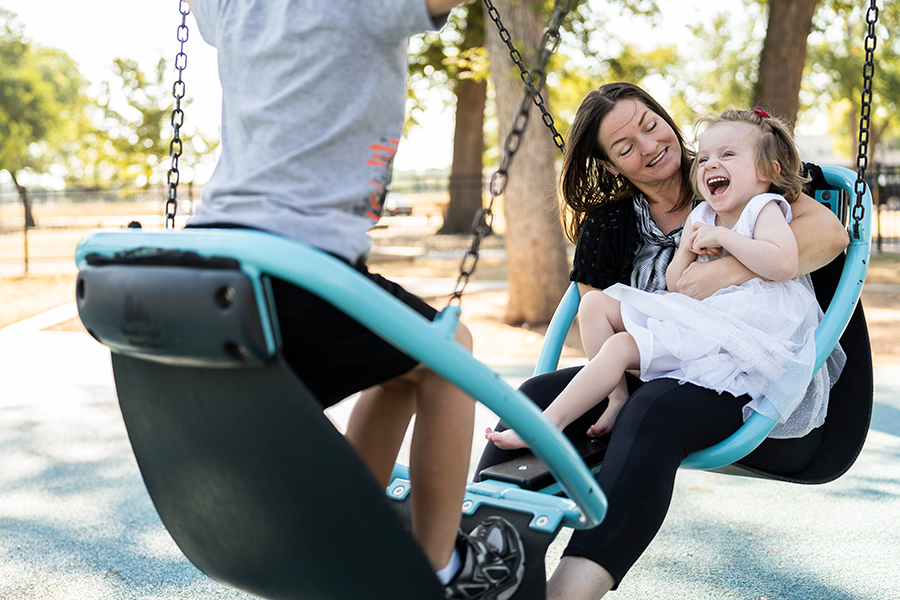
The Heart of Ministry
Gabriel Project, a parish-based ministry managed by Catholic Charities Fort Worth, has paired expectant moms in crisis with a caring mentor since the local chapter was founded in 2004 by St. Francis of Assisi Parishioner Angela Walters. Responding to an increased volume of calls for assistance following Roe’s reversal, the program will double its staff by adding another caseworker, another volunteer coordinator, and more trained Gabriel Project “angels.” Angels are compassionate, understanding women who maintain ongoing contact with a mother throughout her pregnancy.
“Angels are the heart of our ministry,” explained Kasey Whitley, CCFW director of parish social ministry. “They are the ones providing pastoral care, emotional support, and encouragement for the moms. They provide the relationship.”
Catholic Charities contributes social service expertise. The agency equips angels with the material goods a new parent needs. It also has the resources to address more complex issues like safe and affordable childcare, stable housing, and career and vocational training.
If a mom is referred to a CCFW long-term case management program after pregnancy, “we can make sustainable and meaningful impact and lead those moms on the path out of poverty for good,” Whitley added.
Twenty-five parishes in the diocese working with Gabriel Project have assisted 113 women so far this year. A surge of new volunteers is being trained to mentor more mothers who are on a waiting list.
For those who don’t have the time to become mentors, there is another meaningful way to help.
“The quickest and easiest way to support our mothers is by donating or purchasing items off our Amazon wish list,” Whitley said.
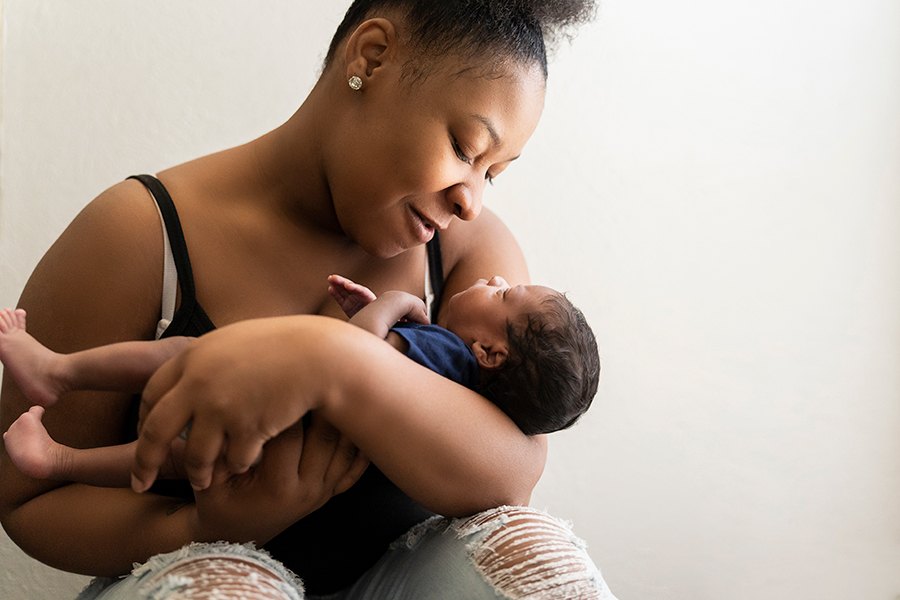
Pregnant women who contact the ministry are typically unmarried, lack a support system, and are experiencing stress related to poverty.
One expectant mom became homeless after the death of her husband and was living in a car when she was referred to Gabriel Project by a local parish. Placed in a maternity home with her five-year-old child, the woman was encouraged to find a job and start saving for an apartment by her Gabriel angel. After achieving those goals, the program furnished the family’s new home with a mattress, bedding, housewares, a crib, and other essentials before the baby’s arrival.
“Her angel provided friendship and hope during a vulnerable and uncertain time for this pregnant mom and her young child,” Whitley said. “Regardless of what circumstances bring a woman to our doors, Gabriel Project responds with compassion, empathy, and support for choosing life.”
Leaders for Life
A renewed commitment from the national Knights of Columbus to support pro-life programs will benefit ministries like Gabriel Project. The Catholic fraternal organization pledged at least $5 million by June 2023 to support pro-life clinics and maternity houses.
For every $500 a council gives to a qualified pregnancy resource center or maternity home, the Supreme Council will add $100 — a 20 percent increase. Anticipating the fate of Roe v. Wade, “pregnancy resource centers will take center stage in the struggle for life,” Supreme Knight Patrick E. Kelly told a gathering of state deputies June 10. “In a post-Roe world, we need to be there for mothers and children. They will need our help more than ever.”
Launched on July 1, Aid and Support After Pregnancy (ASAP) will help cover the rising cost of assisting families. The Knights’ initiative comes at a time when many centers are paying for increased security measures and repairs to buildings damaged by vandalism.
With fewer abortions being performed, “we have to shift our efforts to care for young families and mothers,” explained Chris Stark, Fort Worth general agent for the Knights. “One hundred percent of charitable dollars given to the Knights of Columbus ends up exactly where it is supposed to be.”
Over the years, the Knight’s long-running Ultrasound Initiative has placed more than 1,500 machines in pregnancy centers, including at Loreto House and Flourishing Tree. Members have also served more than 1.7 million volunteer hours and given more than $18 million in funds and supplies to pregnancy centers from 2018 to 2022. Through their programs, the Knights of Columbus affirm the dignity and goodness of human life.
“We have always been leaders in this mission,” Stark enthused.
Never a Right
It was another case argued before the Supreme Court, Dobbs v. Jackson Women’s Health Organization, that triggered Roe’s demise. In a 6-3 decision, the court upheld a Mississippi law banning abortion after 15 weeks. The state asked the court not only to uphold its restriction but to rule on the constitutionality of abortion.
“It begs the question: Was there ever a constitutional right? I don’t believe there ever was a right to abortion — constitutional or otherwise,” challenged David Upham, Ph.D., J.D., director of legal studies and an associate professor of politics at the University of Dallas. “The right existed exclusively in the federal judiciary.”
Some rights listed in the Constitution have a privacy component or secure certain types of privacy, such as the Fourth Amendment’s freedom from unwarranted search and seizure by the government. In 1973, the Supreme Court extended the right of privacy to include a woman’s right to an abortion.
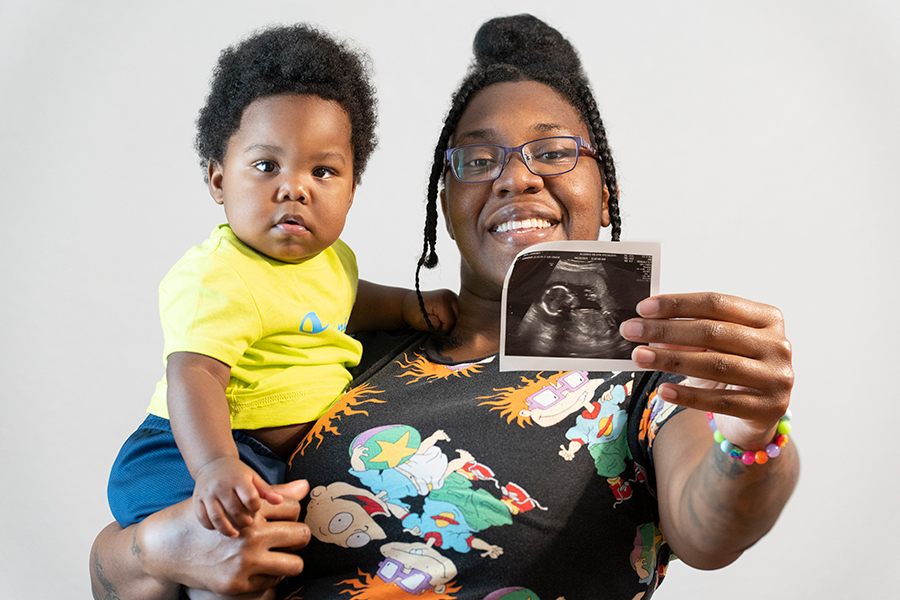
“But there isn’t a general, indiscriminate right to privacy in the Constitution,” insisted the professor, who teaches a course on civil liberties that includes studying the history of the Supreme Court and its interpretation of the Constitution.
The importance of this November’s elections will add a degree of gravitas to the political discourse.
“The midterm elections will determine whether there is enough of a majority in the House and Senate to establish and expand [codify] the abortion license in the country,” Upham pointed out. “Conversely, if pro-life candidates do well, they may pass laws expanding federal protections for the unborn.”
More Support Promised
Abortion in the U.S. has claimed the lives of more than 62 million babies since 1973. With states now allowed to protect mothers and their unborn children, Joe Pojman, Ph.D., executive director of Texas Alliance for Life, promises Texas will offer more support to struggling families.
Final judgment in the Dobbs case, issued July 26, means the Texas Human Life Protection Act, passed in 2021, went into effect August 25. The law protects the unborn beginning at conception and outlines harsh penalties for performing an abortion with exceptions for ectopic pregnancy or miscarriage.
“Now the pro-life movement can expend even greater resources toward providing compassionate alternatives to abortion for women with unplanned pregnancies,” Pojman said in a June 24 press release. “Our goal is to build a society where abortion is unthinkable and women with unplanned pregnancies take full advantage of the vast resources available to them.”
Assistance available in Texas includes a state appropriation of $100 million for the Alternatives to Abortion program which provides services for women facing unplanned pregnancies whether they keep the baby or place it for adoption. Baby items, parenting classes, and job skills training are available for three years after the birth at nearly 200 approved pregnancy centers, maternity homes, and adoption agencies across the state. Hundreds of privately funded centers and church-based programs offer similar support.
Additionally, government-funded Medicaid pays for more than half the births in Texas. The program — available to uninsured pregnant women with incomes up to 200 percent of the federal poverty level — provides prenatal, childbirth, and follow-up care for mothers and babies.
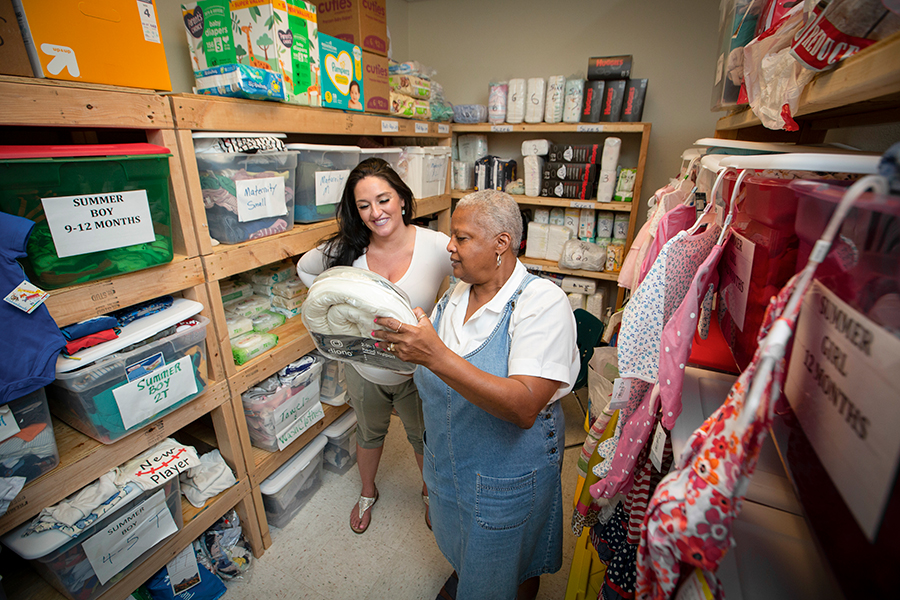
Help without Judgment
Walking with Moms in Need, a campaign started in 2020 by the U.S. Conference of Catholic Bishops, is designed to make ordinary parishioners aware of the important information they can give a pregnant woman challenged by a difficult pregnancy.
The initiative addresses an appeal from Pope Francis to make parishes “islands of mercy in the midst of a sea of indifference.” While many pro-life programs are coordinated at the diocesan or regional level, women facing a crisis pregnancy are best reached at the local level.
“The campaign’s mission is to educate the people in the pews so they are aware of the resources available and help them identify the gaps that exist,” Schauf explained. “Everyone in the parish should know where to refer a pregnant woman in need.”
Statistics from abortion providers show that most women who choose abortion are poor, young, and unmarried. Like the Virgin Mary who “went in haste” to help her pregnant cousin and was greeted joyfully as Elizabeth’s baby leapt in her womb, “we need to do the same,” Schauf implored.
“We must receive women with joy when they share with us that they are in crisis because they are pregnant or parenting young children and need resources,” she explained. “And we must go in haste to help them not with judgment but support.”
